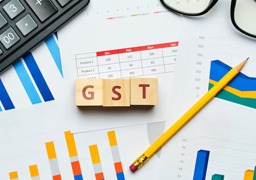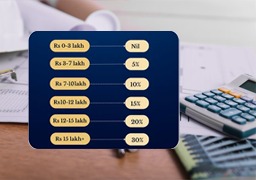# apnokaca
12 posts in `apnokaca` tag

New TDS Section 194T: What You Need to Know About Tax Deduction on Partner Payments
The Union Budget of 2024 introduced a new section in the Income Tax Act, 1961 - Section 194T. This provision mandates tax deduction at source (TDS) on certain payments made to partners of a firm, including salary, bonus, commission, interest, or remuneration. This blog provides a comprehensive guide to understanding the new TDS Section 194T, its implications, and compliance requirements. It covers the benefits and challenges of this provision, helping firms and partners navigate the new tax landscape.

Section 128A: The Game-Changer in Budget 2024 for Taxpayers with Section 73 Demands
The Union Budget 2024 has introduced a significant amendment to the GST law, offering relief to taxpayers with Section 73 demands. This blog post delves into the details of the amnesty provisions under Section 128A, including its benefits, limitations, and exclusions. Learn how to avail the conditional waiver of interest and penalty and simplify your tax compliance process

Budget 2024–2025: GST Law Changes - A Comprehensive Analysis
The Union Budget 2024-25 has introduced significant changes to the Goods and Services Tax (GST) law, aiming to simplify and rationalize the tax regime. This blog post provides an in-depth analysis of the key changes, including amendments to Sections 13, 16, and 128A, and their implications on businesses and taxpayers.

Top Ten Amendments in India's Direct Tax System - Budget Proposal 2024–2025
The Budget Proposal 2024-25 has introduced several amendments to the direct tax regime in India. This blog provides a comprehensive guide to the top 10 amendments, including changes to standard deduction, angel tax, buyback tax, and more. Understand how these changes will impact you and plan your taxes accordingly.

Changes in LTCG Tax on Real Estate Sales: Budget 2024
The Budget 2024 has introduced significant changes to the taxation of long-term capital gains on property sales. This blog post explains the impact of eliminating indexation benefits on property sales and investments, and what it means for property owners and investors.

Benefits of Budget 2024 for Salaried Individuals
The blog discusses the recent TCS rule change in Budget 2024, which brings relief to salaried individuals by reducing TDS deduction and simplifying the process of claiming credit for TCS paid on foreign remittances and other expenses.

Modifications to Slab Rate for FY 2024–2025 and AY 2025–2026: An Detailed Guide
The blog discusses the changes in income tax slab rates for FY 2024-25 and AY 2025-26, including the increase in the basic exemption limit, revision of slab rates, and increase in the standard deduction. The implications of these changes, including tax savings, simplified tax structure, and increased disposable income, are also discussed.

The Standard Deduction in Budget 2024–2025: A Huge Relief
The Union Budget 2024-25 has brought a significant relief to taxpayers with the increase in the standard deduction. This blog post explains the implications of this change and how taxpayers can benefit from it. Learn how to claim the deduction and stay updated on the latest tax reforms.

Budget 2024 Highlights
In the 2024 budget, Finance Minister Nirmala Sitharaman introduced significant revisions to several critical tax sections, aimed at simplifying the tax regime and encouraging investment. Key changes include modifications to the angel tax provisions, Securities Transaction Tax (STT), Short-Term Capital Gains (STCG), Long-Term Capital Gains (LTCG), and adjustments to income tax slabs. These reforms are expected to have a substantial impact on taxpayers and investors, offering potential benefits and incentives for compliance and investment. This synopsis delves into the detailed changes and their implications for different stakeholders.

Understanding Tax Reassessment in India: A Guide to Sections 147 & 148
Have you ever gotten a scary warning from the Income Tax Department about a possible reassessment? This blog gives you the information you need to handle this circumstance with assurance. We discuss the Income Tax Act's Sections 147 and 148, which provide clarification on the authority for reassessments, the potential triggers for them, and the vital notice procedures required by Section 148. The site additionally emphasizes your rights as a taxpayer in the event of a reassessment, including the chance to reply and make your case. Through comprehension of these areas and your available choices, you can approach a prospective reevaluation with a proactive and knowledgeable outlook.

Understanding Depreciation under Section 32 of the Income Tax Act
This extensive blog explores the nuances of depreciation for Indian firms. Examining Section 32 of the Income Tax Act, it explains how business owners can lower their tax burden by deducting depreciation on a variety of assets. Important ideas including depreciation rates, computation techniques, and qualifying requirements are covered in the blog. It also emphasizes the advantages of depreciation claims and provides useful advice for companies to make sure they maximize tax efficiency while abiding by rule

The Income Tax Act's Sections 115BAB and 115BAA
The Income Tax Act's Sections 115BAB and 115BAA, which are intended to give domestic Indian businesses tax advantages, are thoroughly examined in this blog. While Section 115BAA gives existing domestic companies a lower tax rate to improve competitiveness and simplify the tax system, Section 115BAB targets new manufacturing companies with a reduced tax rate to encourage industrial expansion. In order to assist businesses in selecting the section that best meets their needs, the blog provides a comparative study of the salient characteristics, eligibility requirements, benefits, and compliance requirements of each section. Comprehending these provisions can result in noteworthy tax benefits and enhance the financial well-being and expansion of Indian enterprises.
